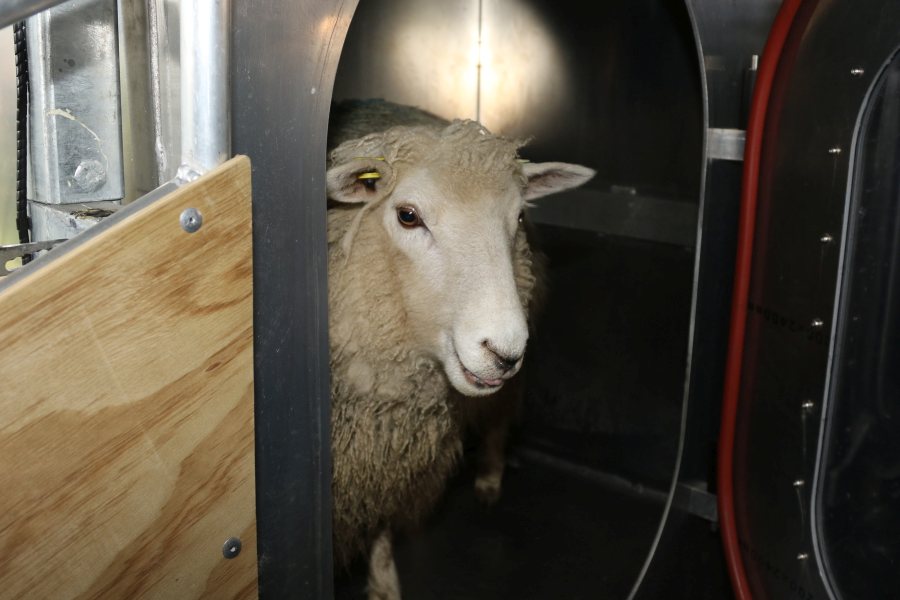Portable chambers to measure sheep methane introduced on UK farm

High-tech portable chambers for measuring methane emissions from sheep are being used in the UK for the first time.
New Zealand-designed Portable Accumulation Chambers (PACs) have been unveiled as the latest tool in mitigating agricultural greenhouse gases.
The trailer-mounted chambers can predict methane emissions in individual sheep from a variety of systems, including at pasture, as well as in multiple locations.
The chambers collect air samples and then analyse methane concentration, showing which genetics, feed types and systems generate the highest emission levels.
Researchers at Scotland’s Rural College (SRUC) have helped roll out the PACs on a Hertfordshire farm.
In a recent blog post, Professor Wayne Powell, principal of SRUC, called for increased efforts to reduce the climate impact of ruminant livestock.
And Dr Nicola Lambe, also from SRUC who is leading the PACs project, said there was an urgent need to mitigate greenhouse gas emissions from sheep.
Recent figures show there are more than 1.2 billion sheep in the world, producing around 7 million tonnes of methane into the atmosphere.
Dr Lambe said: “Despite the fact resource efficiency and greenhouse gas emissions are global priorities, there are few examples around the world of research to implement breeding strategies to directly tackle these issues in sheep.
“This is largely due to the difficulty in recording feed consumption and greenhouse gas emissions on an individual animal basis, especially in grass-based systems.
"The Portable Accumulation Chambers will play an important role in starting to address this issue.”
Rob Hodgkins, who has 2,500 sheep on his farm in Hertfordshire, has become the first farmer in the UK to use the PACs, following a grant from Innovate UK.
He said: “Not only does this make sense from an environmental point of view, but it also makes sense economically.
"It will only be a matter of time before consumers will be able to look at labels on packets of meat that shows what they’re buying has come from, for example, a carbon-zero sheep.”








